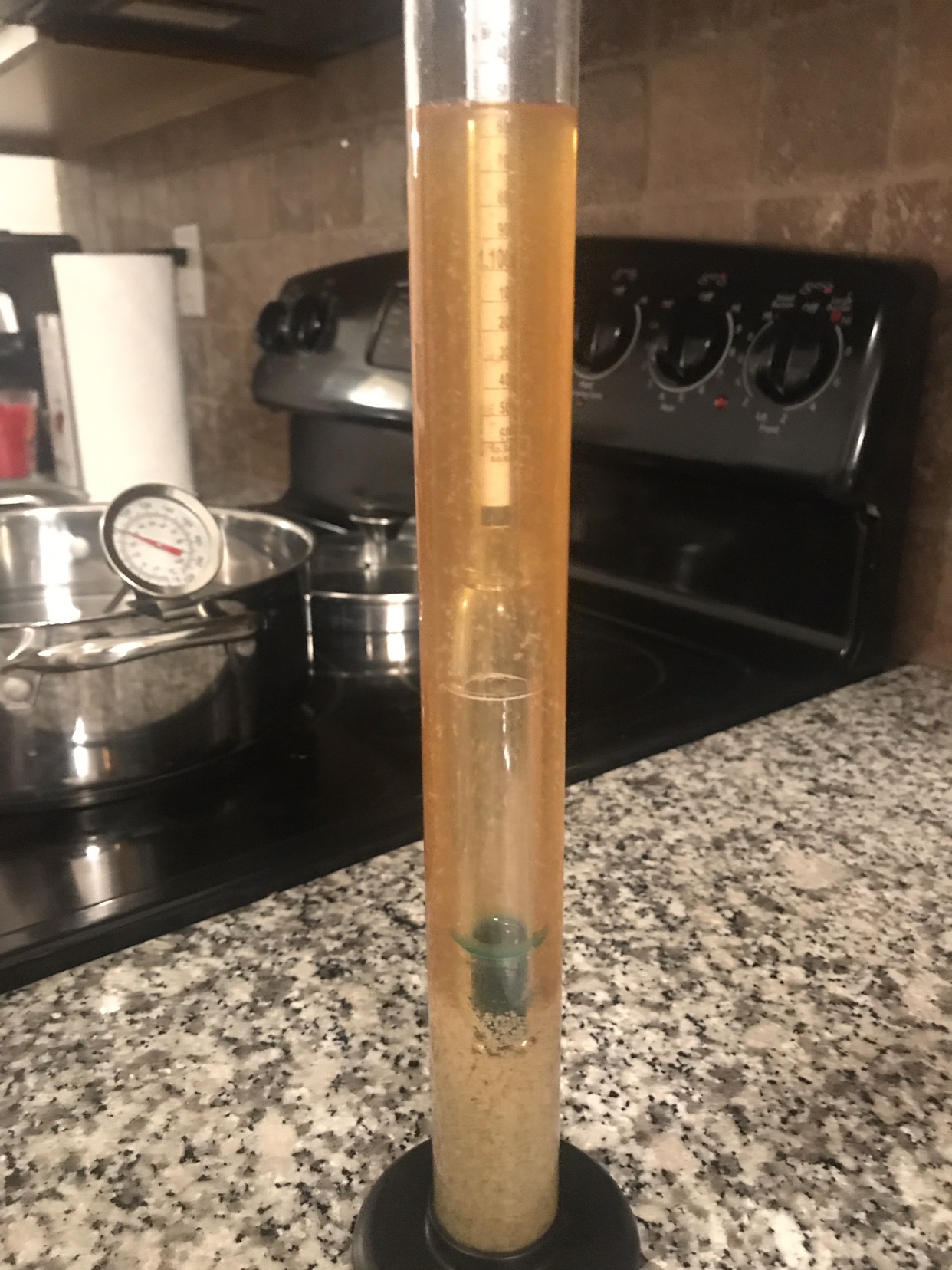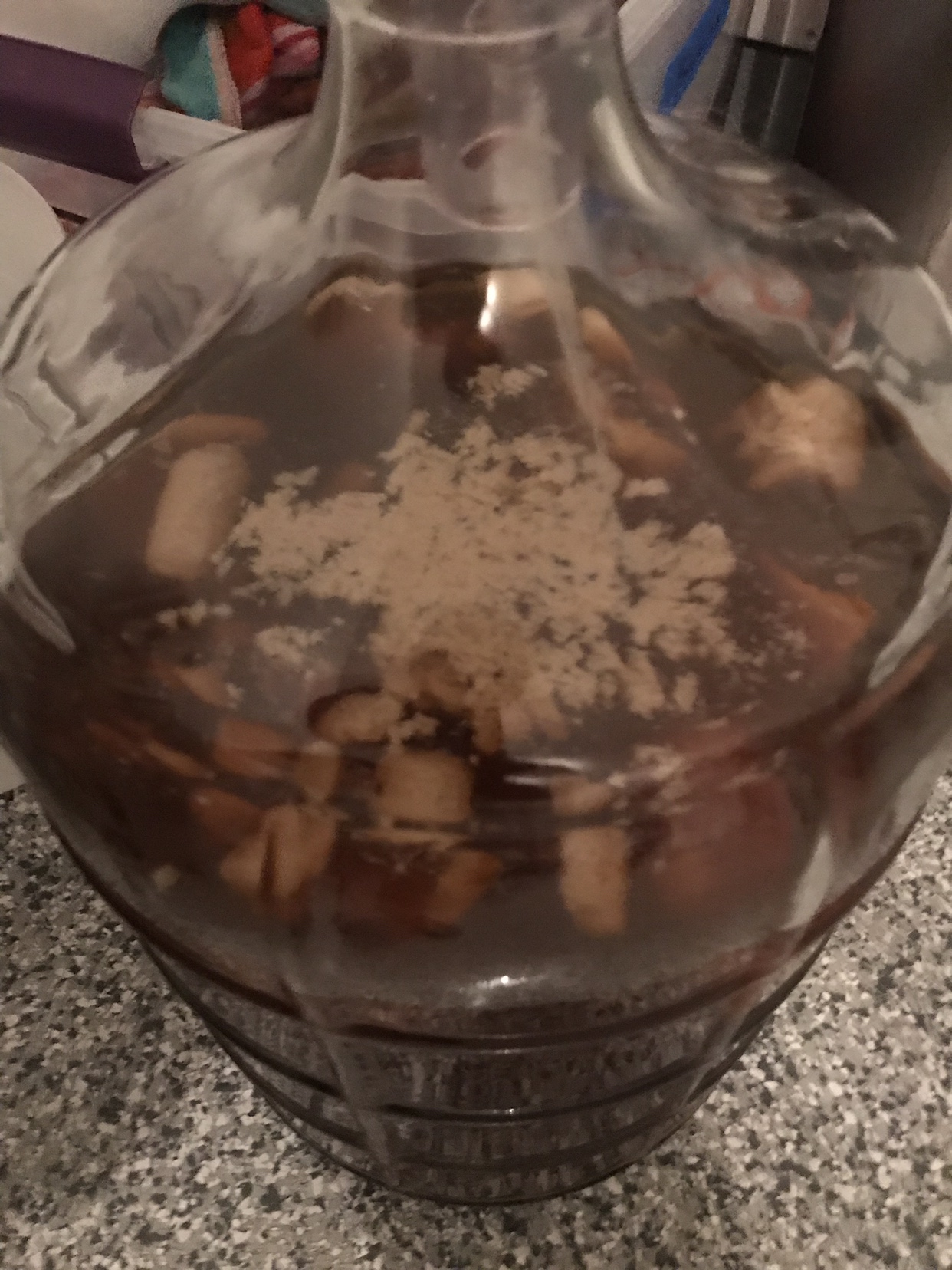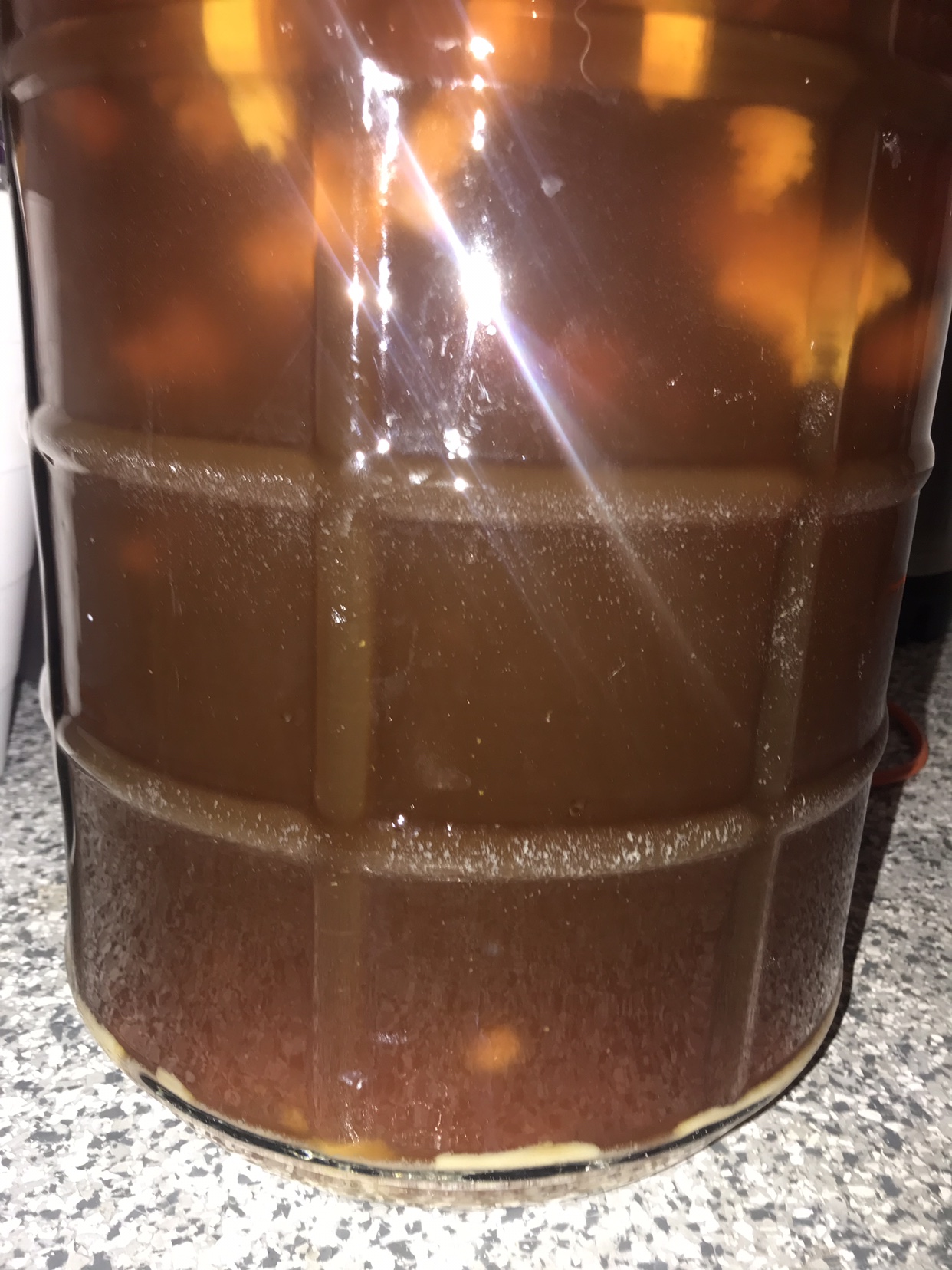elgatovolador
Well-Known Member
- Joined
- Jan 14, 2019
- Messages
- 61
- Reaction score
- 47
Did my first all grain last night, started at 5pm and ended at 1am. Sleep deprived as I write this but overall enjoyed the process more than extract.
I ended up with a few “wtf” moments where I thought I had done enough research and I still got surprised by some things happening, hopefully someone can give me a hint of what was going on so I can correct it next time. Thanks in advance!
- I followed an online calculator for water volumes needed for mash tun and HLT, which were 4.1 gal and 5 gal respectively for 1.33 grist ratio. I made the choice to use 4.5 and 5.5 to buffer against any mistakes I could make so that changed my grist ratio...not sure what the consequences of this may be.
- While I was sparging, I tried to collect 280mL/min (0.074 gal/min) based on the research I did. In the act of collecting it, it seemed pretty darn slow. At the same time, it seemed that the flow was not constant so I had to open/close the valve to make sure grain wasn’t getting stuck, which worked sometimes. With my wort collection rate, the water level on the grain bed caught up to the sparge nozzle so I had to close the HLT valve. I ended up cutting some of the high temp silicone hose to make it higher. Eventually I turned stopped being so conservative with the mash valve and opened it more and had more flow to my boil kettle. I never really had a “sparge flow” like all the videos out there where you see the water “umbrella” into the mash. I ended up running out of sparge water 50 minutes in and I had only collected 4 gal (targeted 6.4) but luckily gravity helped me get the additional 2.5 out of the grain bed. Is there an adverse effect if you run out of sparge water?
- First time using Whirlfloc, is this it in action?



It’s a Pale Ale with Citra and Cascade hops btw. Hope it comes out good! If anyone has any ideas or suggestions for my questions above I’d like to hear them!
I ended up with a few “wtf” moments where I thought I had done enough research and I still got surprised by some things happening, hopefully someone can give me a hint of what was going on so I can correct it next time. Thanks in advance!
- I followed an online calculator for water volumes needed for mash tun and HLT, which were 4.1 gal and 5 gal respectively for 1.33 grist ratio. I made the choice to use 4.5 and 5.5 to buffer against any mistakes I could make so that changed my grist ratio...not sure what the consequences of this may be.
- While I was sparging, I tried to collect 280mL/min (0.074 gal/min) based on the research I did. In the act of collecting it, it seemed pretty darn slow. At the same time, it seemed that the flow was not constant so I had to open/close the valve to make sure grain wasn’t getting stuck, which worked sometimes. With my wort collection rate, the water level on the grain bed caught up to the sparge nozzle so I had to close the HLT valve. I ended up cutting some of the high temp silicone hose to make it higher. Eventually I turned stopped being so conservative with the mash valve and opened it more and had more flow to my boil kettle. I never really had a “sparge flow” like all the videos out there where you see the water “umbrella” into the mash. I ended up running out of sparge water 50 minutes in and I had only collected 4 gal (targeted 6.4) but luckily gravity helped me get the additional 2.5 out of the grain bed. Is there an adverse effect if you run out of sparge water?
- First time using Whirlfloc, is this it in action?



It’s a Pale Ale with Citra and Cascade hops btw. Hope it comes out good! If anyone has any ideas or suggestions for my questions above I’d like to hear them!




